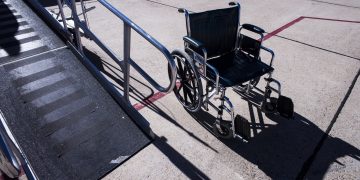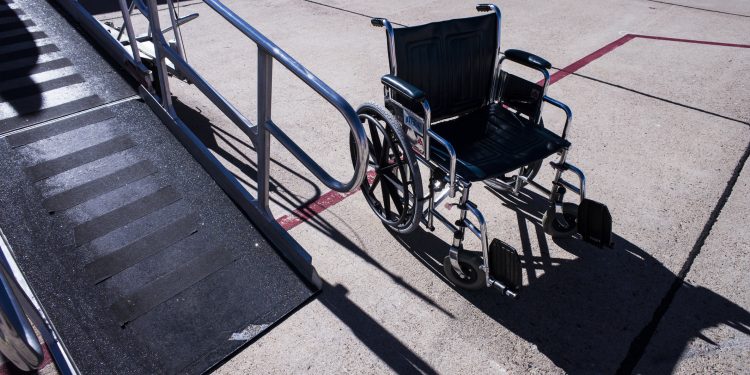A woman traveling with Southwest Airlines suggested a new policy after the company damaged her wheelchair.
In an interview with USA Today, Bethany Piehl said her wheelchair was damaged during a layover in New Orleans while she was flying home to Texas after a work trip in Washington, D.C.
“I watched them throw, for lack of a better word, my chair onto the conveyor belt,” she recalled.
Additionally, Piehl, who requires a wheelchair due to multiple progressive conditions affecting her nervous system, said when she arrived in San Antonio, she noticed her chair was scratched up and visibly dented. Once she got into her wheelchair, she said it was wobbly due to her front wheels not being level.
“I travel for work a lot, multiple times a year. How can I travel safely with you next time and know my legs won’t be broken next time because my chair is my legs?” she explained.
Following her complaint, Southwest Airlines issued a statement to USA Today.
“Our teams have been in touch with the customer to assist them with their individual situation,” the company said.
View this post on Instagram
However, Piehl wasn’t satisfied with the airline’s lack of effort and suggested a new policy to prevent further damage for other wheelchair users.
Piehl said she spoke to the airline about strapping her wheelchair frame to an extra seat with a standard belt for an additional charge. However, she claimed Southwest told her that was against its policy.
“I would like to see every passenger that has a manual wheelchair have the right to have their chair onboard with them, through either the closet if it fits or through seat strapping, without having it be an extra cost,” she shared.
She added, “I don’t think anyone should be left wondering if they’ll be able to get off the same way they got on.”
In an audio recording provided by Piehl to the outlet, a Southwest customer service employee confirmed “seat strapping is permitted for instruments on the airline but not for mobility devices.”
“To allow seat strapping, it’d be 100% protection against this kind of damage happening for a manual chair,” she shared.
A technician for Global Repair Group, which contracts with Southwest Airlines on mobility device repair, informed Piehl that her wheelchair would need to be replaced. However, the timing of when it would be fixed is uncertain.
“I think there’s this misconception that it’s just a chair, it’s replaceable,” she stated. “Every single measurement on my chair is specific to my body.”
She also hopes her experience will help other travelers with disabilities.
“There is no way to replace the hours that have gone into trying to fix this. What I’d like to see is policy change for further protection in the future,” she said.

























